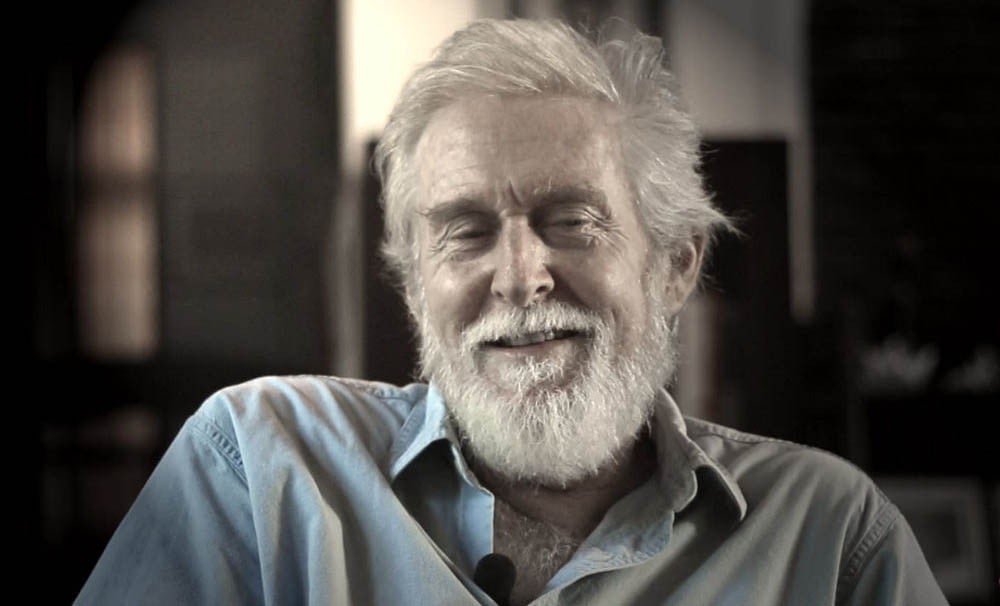
Tom Alter, the gora who played Maulana Azad and much else, is no more

A typical white man in the Indian cinema would be cunning, mischievous, and ruthless. Tom Alter changed that perception. Alter died on Sept 29 in Mumbai at the age of 67. Had he lived longer, he could have become a grand old man of Bollywood but what he achieved within 40 years of cinematic career was enough to make him a legendary actor and theatre icon.
He was a man of many talents; apart from being an acclaimed actor, he was known as a writer, producer, tv show host, columnist and a cricket enthusiast.
A son and a grandson of American Presbyterian missionaries settled in India, Tom Alter appeared in over 300 movies, including blockbusters such as Aashiqui, Ram Teri Ganga Meli and Parinda. But his most impressive performances are in historical dramas both in film and on stage. How would you like to watch a solo performance spanning over 150 minutes with minimum of props, and that too about a maulana? The solo performer is Tom Alter and the maulana in question is one of the greatest leaders of the 20th-century India and you won’t blink an eye. Urdu play, Maulana Azad, written and directed by Dr Sayeed Alam, is available on YouTube, and what a treat it is!
The play has been billed as one of the finest works on Indian stage in which Tom Alter brings the personality, scholarship, and the times of Maulana Azad to life. You can’t help but give credit to both Dr Sayeed Alam and Tom Alter for this amazing masterpiece of a play. The playwright was a professor of political science at Aligarh before opting for his passion of writing, directing, and acting in plays. With more than 40 stage plays and 1500 shows to his credit, he has written about Azad, Daagh, Ghalib, Hasrat, Iqbal, Meera, and many others. Tom Alter was one of his favourite stage performers.
The play is set in the backdrop of Maulana Azad (Tom Alter) dictating notes to his secretary, Humayun Kabir, for his book India Winds Freedom. The best parts are the ones in which the Maulana digresses from his usual political narrative and relates anecdotes from his life spent in jail in the company of poets, and from music to Mecca. Tom Alter recites Urdu couplets from Ghalib and Daagh to Josh and Hasrat with ease. His accent, intonation, and pronunciation make native Urdu speakers shy.
Alter’s penchant for Hindi and Urdu was unparalleled in the Indian cinema. There have been American and British scholars of local languages but for an actor, this was a unique feat. His command of the two languages was so impeccable that other Indian actors, at times, have been reported to have consulted Alter for corrections. His first performance with fluency in Urdu came in 1977 when the great Bengali director, Satyajit Ray, cast him in his only Urdu film Shatranj ke Khilarhi (the Chess Players) starring Sanjeev Kumar, Saeed Jaffrey and Shabana Azmi.
Alter’s memorable rendition of Urdu poetry and its translation into English -- while standing tall in front of the formidable Richard Attenborough -- is unforgettable. Based on a story by Munshi Premchand, the film chronicles the days preceding the annexation of Oudh by the East India Company. Attenborough plays General James Outram and Alter is his aid de camp. Outram asks the meaning of words, such as bulbul and mushaira while talking about Nawab Wajid Ali Shah and Alter to demonstrate his impression recites the original Urdu poem ‘Sadma na pahunche koi mere jisme zaar per/Aahista phul dalna mere mazar per’.
Another of Alter’s outstanding performances is in the film Sardar directed by Ketan Mehta in 1993. This is an account of Sardar Vallabhbhai Patel’s political life in which Alter assumes the role of Lord Mountbatten. He gives stellar performances when he negotiates the terms of independence with the leaders of Congress and Muslim League. It is a long movie of almost three hours and Alter appears only in the second hour but leaves a lasting impression as the last viceroy of India. His manipulation of unfolding events is superb while trying to give a semblance of sincerity, at the same time making sure that he doesn’t leave India as a united country.
Alter was equally proficient in the genres of film, television and stage but perhaps the best in him came out in theatre. In addition to Maulana Azad, his other plays are also available online. One wonders how someone whose mother tongue was English could play the role of Ghalib and Azad with flawless Urdu dialogues. But that was Tom Alter who came to Mumbai to become a hero like his favourite Rajesh Khanna but ended up playing much more versatile characters than any of his contemporaries.